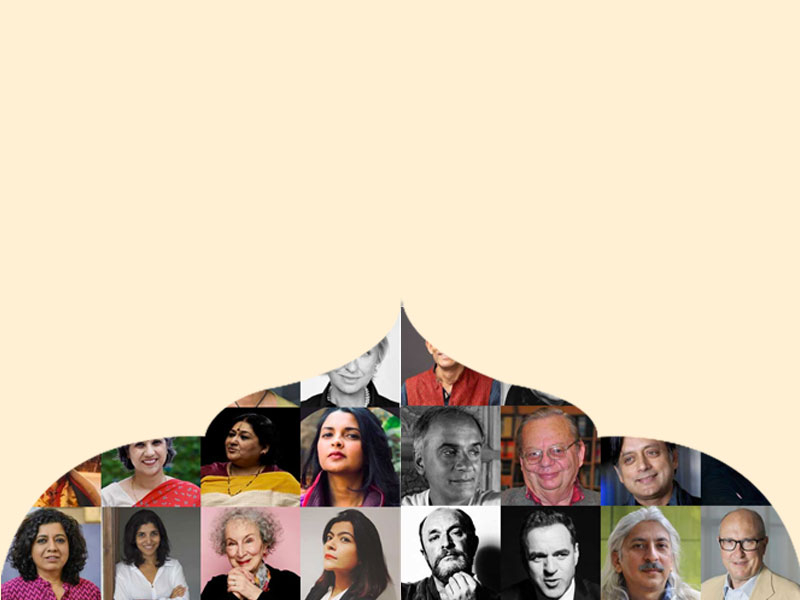Tune in for narratives critical to our times. Listen, ask and seek answers.
Watch NowFact and Fiction: Unpacking Historical Dramas with Peter Morgan on JLF Brave New World
This weekend, JLF Brave New World gave us the opportunity to explore a little bit of Peter Morgan’s genius. Acclaimed playwright and screenwriter, Morgan is best known for writing films such as The Queen and Bohemian Rhapsody. In his conversation with Indian filmmaker Ritesh Batra (of The Lunchbox and Photograph fame), Morgan decoded his creative process with reference to his most recent work and one of Netflix’s most-streamed historical dramas, The Crown.
The series leads us inside the Royal House unlike anybody has in the past- be it the British tabloids or the grandiose public ceremonies. It sketches out each of its characters carefully and in vivid detail, making the Royal House of Windsor seem more humane and less a personification of God’s mandate. As he elaborated on his creative process, Morgan commented, “On the one hand, we know everything about them; where they were, what they did, every single day of their life. When it comes to imagining what they feel, that has to be to some degree, an act of creative imagination.â€
If you’re a regular watcher of The Crown, you would realise that while Queen Elizabeth II stands at the very centre of what spans 10 years over 10 episodes of each season, Morgan very cleverly ensures to inject some world events that may not be connected to the Crown per se, but still affect it. During his session, he referred to this as one of the “core elements†of his storytelling process. According to him, everything at the end of the episode should tie into how the main characters have been moved due to the said event, however imagined that may be.
While this can get very restrictive for a dramatist, who at the end of the day, also needs to create something that the audience will participate in and consume, Morgan said that this helped him give the show more range, by letting him dabble in emotions other than those of the Monarch. However, while he believes in pushing the envelope, he has had to practise restraint, as he feels the audience can sense inauthenticity and be very quick to dismiss.
How far is too far then? Creative imagination or creative liberty is something we as an audience in India, often question when it comes to our historical dramas. Whether it’s Mohenjo-Daro, Jodhaa-Akbar or Padmaavat, the genre has always been controversy’s favourite child. And while I personally appreciate the insight these movies lend to the glamorous and gory world of our past, they lack a certain depth, due to which, one cannot consider them to be a part of historical discourse.
While listening to the session that Ritesh expertly navigated the audiences through, it was interesting to envisage a show like The Crown re-imagined in the Indian context. However, the larger question that remains is not whether a similar show can be conceived here, but whether our storytellers are responsible enough to balance fiction with facts and if we, as an audience can consume art without bruised sentiments. Based on a poem that has very little factual backing, Sanjay Leela Bhansali’s Padmaavat hurt community sentiments across India even before its release. Post release, however, the conversation shifted to the representation of Allaudin Khilji, during which, various historians dismissed his characterisation as a mere plot device.
And this is perhaps, where the problem lies. While I am not discrediting Bollywood filmmakers who have ventured into this genre (there have been many that have crafted a landscape as real yet imagined as possible), most still struggle to balance the drama, or what we call “masalaâ€, with the actual plot, painting heroes and villains instead of well-researched, layered characters living through historical & often dramatic times.
What then sets The Crown apart? Is it the fact that the events are set in a more recent collective consciousness that disallows over-dramatisation and deviation from source? Or is it what Peter Morgan referred to as his “moral and ethical†responsibilities as a dramatist?
While I continue watching Queen Elizabeth II’s journey one episode at a time - Netflix, do note, there is too much to absorb and I possibly can’t watch more than that in a sitting (!)- I look forward to some of our storytellers taking advantage of the freedom, time and space OTT platforms provide and crafting a well-researched yet well-imagined history lesson for viewers.





Leave a comment